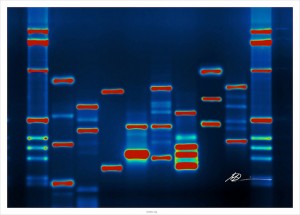“How can I get my blood tested to prove that I am a Cherokee?”
 This is one of the most commonly asked questions on this site. Unfortunately, the simple answer to this question is, “You can’t.” It’s true that there is a “Native American” genetic markers which can be found using both the Mitochondrial and Y-chromosome testing methods, but these tests can only indicate if a person is possibly Native American, it will not go so far as to indicate which tribe a person descends from. Additionally, each genetic test is limited by gender. Specifically, the Mitochondrial test can only test the ethnic heritage of an unbroken female line, and the Y-chromosome test can only test the ethnic heritage of an unbroken male line.
This is one of the most commonly asked questions on this site. Unfortunately, the simple answer to this question is, “You can’t.” It’s true that there is a “Native American” genetic markers which can be found using both the Mitochondrial and Y-chromosome testing methods, but these tests can only indicate if a person is possibly Native American, it will not go so far as to indicate which tribe a person descends from. Additionally, each genetic test is limited by gender. Specifically, the Mitochondrial test can only test the ethnic heritage of an unbroken female line, and the Y-chromosome test can only test the ethnic heritage of an unbroken male line.
What does that mean? If, for example, your mother’s father was half-Cherokee and he received his Cherokee ancestry from his mother, then both the Mitochondrial test and the Y-chromosome test would result in a false negative for the Native American genetic marker, because the Cherokee heritage went from female to male to female to male — not an unbroken female or unbroken male line.
Despite this hitch, DNA testing has come a long way in recent years and is advancing all the time. A popular initiative within the Genetic Genealogy community is to link a tree of people together based on both genetics and genealogy, thus allowing science to prove who is and who is not related, and using genealogy research to fill in some of the gaps that science can’t yet test for. Ancestry.com is working to link individuals together based on genetic links, with the goal that perhaps some day we will all be linked together in one giant genetic family tree.
Today, though, we have to contend with the current limitations of science. Additionally, none of the federally-recognized Cherokee tribes accept DNA evidence as proof for enrollment. So, at least for the time being, genealogy research is still required when trying to trace your Cherokee heritage. But that’s not the end of the world, is it? Genealogy can be a very fun and exciting way to discover your family history and understand where you come from.
Photo Credit
Micah’s DNA – Micah Baldwin @micahb37/Flickr – Creative Commons